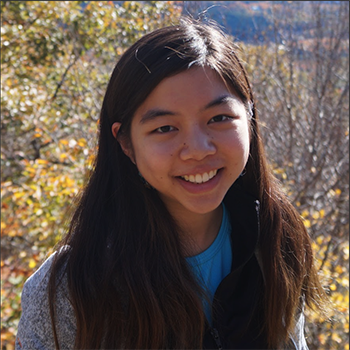
A kind of person, or kind-of a person?
Disentangling identity from work in graduate school
I close my eyes and imagine a world where I am only this: a violinist on a stage, where the music becomes my everything. I often play this way, temporarily blind to the reality that, after my final note fades, I will spend the rest of tonight staring blankly at a blinking terminal cursor.
Music has many parallels with computer science research, at least the classical chamber music that I play. You investigate the structure of the piece (or program), you interpret what it means, and you collaborate with others to come up with a deeper understanding. But in many ways, the two clash horribly. Rehearsals often proceed as a research advisor’s worst nightmare, full of wild gesticulations and feelings. We tell each other to “spin the sound together in the space between notes” to unite the resonance of our instruments. We wind up inexplicably in tune with each other, and not just literally: with our eyes closed, we know exactly when to place the next note and when to breathe. We have a sixth sense beyond logical understanding.
I thought I had figured out which “real world”—music or computer science—I belonged in after graduating undergrad, when I made the “logical” choice to stick with computer science, certain that it was the right path. Although I loved music, I didn’t live music as so many of my friends do. For four years in undergrad, I had been blessed with opportunities to play with amazing musicians who were on the path to becoming professionals. Being undergraduates together put us on equal footing. But this transient equality rapidly disappeared once we graduated, each of us departing into our own piece of the world.
Unfortunately, my certainty disappeared during my first week in lab. Almost immediately, I found myself lost. First in getting to lab, as I kept trapping myself in the Stata Center tower staircases. And then, once I triumphantly arrived, when my newfound colleagues greeted me with:
“What kind of person are you?”
“Are you a distributed systems person?”
“A security person?”
“Oh, maybe a crypto person? Or a verification person?”
My half-baked response (“Who says I’m a person??”) successfully avoided giving a real answer, as I realized, awkward and ashamed, that I did not have one. But the question stewed in my head, refusing to budge. My triumph gone, I soon felt more lost than I ever felt navigating the Stata Center.
For the first year of my PhD, I continued to avoid this haunting question. Instead, I turned back to the part of myself I was certain about, wrapping myself in the comforting guise of “musician” instead of “clueless computer scientist.” And surprisingly, the world of music—although perhaps not the professional one—readily welcomed me back. My afternoons often found me texting friends asking if they wanted to sight-read Brahms and Beethoven in the practice rooms of Building 4; biking with thirty pounds of music and instruments over to Harvard to play chamber music with the Parker Quartet; and, for the first time in years, seriously picking up solo repertoire again to give a recital at MIT.
I rediscovered the exhilarating freedom in conveying meaning through emotions, rather than carefully articulated, logical thought. I marveled at how easily I can speak without words. And for once, I didn’t need to explain why or how.
I just had to play from the heart.
It helped that MIT, Harvard, and unstructured research schedules encouraged my musical endeavors. I now have a minor in “violin performance” (a field defined just for my PhD), and MIT’s Emerson Fellowship enabled me to take lessons again, giving me the confidence to perform solo. I admit I still struggle with guilt over the hours I spend in the practice rooms and in concert halls: grad school’s notorious reputation of 24-hour work-days is not exactly unfounded. But it’s now clear that I need music, and I actually have the chance to keep it, if only I can resist the unhealthy urge to put work before everything else. Without music, I would only ever be part of myself, only kind-of a person.
As I approach the end of my third year(!!) at MIT, the search to answer, “what kind of person am I?” is no less daunting. But I grow increasingly convinced that the question is the wrong one to ask, and to try to answer. It assumes we want to find certainty and be a single kind of person. It assumes that we need to neatly package our identity inside the well-defined box of our work.
It’s inevitable (I hope) that I will one day properly answer, “What is your research on?” After all, to write a thesis, I’ll somehow have to settle on a topic. But research does not (and should not!) define a person. My uncertainty about research says nothing about my identity as a musician or a friend or anything else, and whether these identities are permanent or fleeting in nature makes them no less important.
For better or worse, the uncertainty of graduate school may leave you finding yourself welcome in many worlds, yet confined to none.
I’m sitting in front of my screen, with its cursor blinking relentlessly in… out… in… out…
But moving the cursor can wait.
I stand up, pick up the violin by my side, and close my eyes.
This post was written in 2020.
Share this post:
